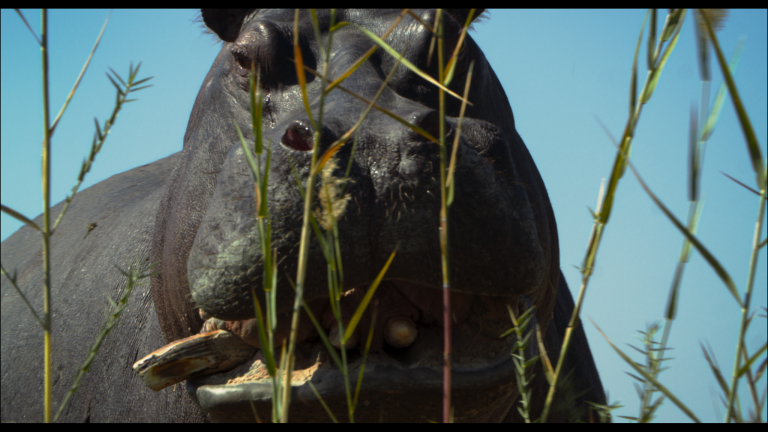Pepe It’s hard to put into words. This mysterious film exemplifies excellent filmmaking but feels ham-fisted in its esoteric content. From the broadest perspective, Pepe The film follows a real-life Colombian hippopotamus’ final thoughts as he gained the ability to tell the story of his life. It also touches on language, colonialism, gender politics, folk mysticism, existentialism, and sometimes hippopotamus biology.
Pablo Escobar is said to have introduced various exotic animals to his Naples estate (Hacienda Nápoles) in the 1980s. When he was killed, the four remaining hippos began migrating and breeding along the Magdalena River. By 2023, the number of hippos had increased to approximately 169. Pepe The story follows a narrative that begins with the hippo’s parents in Southwest Africa (now Namibia) in 1979 and ends with Pepe’s murder in 2009. “Murder” is a key word Pepe Prioritize attributing agency to Hippo to describe his emotional journey.
When Pepe is expelled from his herd (the alpha male hippopotamus banishes all male hippos born), he tells the audience: “That’s how I realized that hierarchy existed – first of all Pablito’s arrival [Escobar]. Then, when I left the herd, my story only became their story. Director Nelson Carlo de los Santos Arias uses Pepe’s voice to examine language within a postcolonial framework. Pepe the hippo speaks German, Spanish, and Afrikaans while wondering How can oneself speak and understand that these voices are not Ordinary For hippos. He realizes that he is the subject of a story that he can’t even tell because he’s actually a hippopotamus (reminiscent of Paul Gilroy’s 1993 book black atlantic Linking the transatlantic slave trade to the double consciousness within black Americans who reconciled their identities on a daily basis).

At the 2024 Berlin Film Festival Press Conference Pepede los Santos Arias was asked how he conceived his film. He responded that he was not interested in the Colombian government and the current situation of hippos: “What interests me is all this symbolism.” When the current sociopolitical reality of Colombian hippos is not explicitly acknowledged, the director is in a precarious position, but from the perspective of the film Looking at the formal elements, this symbolic meaning becomes very obvious.
Stunning cinematography and sound design shape the film: omniscient overhead shots of the Magdalena River; a barrage of soldiers’ bullets transformed into an eclectic drum loop. However, a key question arises when the center of subjectivity shifts from Pepe to a couple played by Jorge Pontilon Garcia and Saul María Rios and their human melodrama. The fisherman Candelario is fascinated by a (then) unknown animal in the river and confides in his wife Bettania, who accuses him of deceiving and using the river beast as an excuse to avoid confrontation. In Afrikaans folklore, a hippopotamus attack indicates an unfaithful spouse. But if a movie is so determined to let a philosophical hippopotamus do the talking, shouldn’t it stick so resolutely to that unique theme? The decentralization of Pepe’s lucid revelations thwarts the imagination in the film’s magical realism. Stories about animal subjectivity can reveal many of the hidden absurdities in our society.

Pepe Unlike most films released recently, especially since it comes from a Dominican filmmaker dedicated to combating cultural exclusion in the international conversation. De los Santos Arias is a filmmaker I admire for his political intent and poetic sensibility. He explores what it means to be a Caribbean filmmaker in an industry that barely recognizes his region. Pepe said in his final moments: “What is real and false, what is serious and playful, real actions and the shadows of my life. A baroque mixture, excessive, opaque, heterogeneous … I could never understand how they came to be.”
Pepe is a hippopotamus whose parents are from South-West Africa and were forced to migrate to Colombia from their home country. Suffocated by a language and culture that is not their own, these hippos have adapted to create sustainable habitats. However, as hippo populations grow, the ecological risks and dangers to humans prompt authorities to hunt this “invasive species.” Pepe’s martyrdom (similar to Harambe’s in 2016) has drawn widespread international attention to animal rights awareness and protection. Hippos are considered a vulnerable species, with a global population of approximately 130,000.
The beauty of the hippopotamus is breathtaking Pepebut the truth is, humans are often too immersed in their own narratives to notice.

Pepe It’s currently available to stream on Mubi.

